On Nov. 8, 2016, Detroit residents voted into law the nation’s first Community Benefits Ordinance (CBO). The law requires any developer receiving over a certain threshold of local public subsidies or tax breaks to engage with a local advisory council to address community concerns. As with traditional Community Benefits Agreements (CBA), the developer’s obligations could range from local hiring requirements to affordable housing minimums to the inclusion of public art. As a result of the CBO, six Detroit developers are in a queue to form an agreement to provide community benefits, positioning Detroit to enact more of these agreements than any other city in the nation.
For equitable development activists—especially those who have fought long battles to secure a CBA or other concessions from a grudging developer—Detroit’s CBO and its mandate may seem like major progress. And it is—just not how they may imagine it to be.
In fact, the enacted CBO was not the one that local community leaders proposed and fought for, but rather a rival proposal from a local council member, which inflated the CBO’s minimum thresholds and placed negotiating power in the hands of council appointees instead of neighborhood coalitions. The Detroit People’s Platform, a broad network of local social justice advocates, asserts that Detroit’s CBO-mandated agreements have already been plagued by a lack of community representation and even hostility toward vocal community members who have attended meetings.
What local advocates did win last year was less tangible, but still critical. Over three years, their campaign normalized and popularized the once-fringe notion of community benefits and equitable development among Detroiters, from hundreds of thousands of everyday residents to local media outlets to the candidates for mayor and city council in Detroit’s 2017 elections.
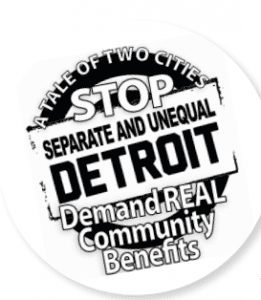
Photo courtesy of Equitable Detroit Coalition and Detroit People’s Platform
This paradigm shift is a foundation not just for a renewed campaign for a true community-driven CBO in Detroit, but for a sustained effort to put more power in the hands of communities that have historically been marginalized in local development decisions. It also offers insight—and a degree of promise—to those fighting for equitable development across the country.
Urban Economic Development Policy
and the Role of CBAs
Like every U.S. city, Detroit’s economic development policy relies heavily on the provision of public subsidies, tax benefits, or public land transfers to private businesses and developers to incentivize them to build new projects, expand existing facilities, or relocate from elsewhere.
Proponents of this strategy argue that, in a competitive economy, these incentives are the only way a city can attract new jobs, economic activity, and human capital they need to grow and build their tax base. The high-stakes tournament to attract Amazon’s second corporate headquarters is the most prominent recent example of the normalcy and acceptance of local tax benefits, and Detroit is an eager participant, as evidenced by its highly-produced pitch video.
Less charitably, this paradigm has been labeled corporate welfare or simply bribery—a race to the bottom that shifts money from taxpayers to already-prospering corporations. In any case, while many downtowns and central urban neighborhoods have grown and prospered under this model, there is scant evidence that it has ever improved outcomes in high-poverty urban communities or abated persistent racial inequality, in Detroit or any other city.
With little hope of federal policy to curb local corporate subsidies, Detroit is also among many cities in which grassroots leaders have turned to CBAs as a more viable way to ensure high-poverty communities do directly benefit from developments in which local public resources are used. After years of watching the city offer subsidies and tax benefits to major downtown projects while cutting basic services to its poor neighborhoods, several Detroit coalitions have sought CBAs in recent years to ensure affordable homes, living wage jobs, and other community needs are met in these projects, from supermarkets to arenas to a local public transit line.
Detroit Pursues the Nation’s First CBO
In January 2014, a network of community leaders and grassroots organizers from across Detroit formed the Equitable Detroit Coalition, with the creation of a CBO as its raison d’être. Led primarily by women of color, the coalition was built on a decades-long tradition of activism in Detroit, emblemized by longtime leaders like Grace Lee Boggs. But it was also driven by a particular touchpoint in Detroit’s history.
In July 2013, the City of Detroit declared bankruptcy with over $18 billion in debt, and in response, Michigan’s Governor appointed an emergency manager, who oversaw Detroit’s governance for the next 18 months. Yet as Detroit confronted its mountain of debt and a growing shortage of resources for housing, education, and services, the city continued to fund major projects with millions of dollars in subsidies. Meanwhile, most local campaigns for CBAs had been met with deep resistance and had not gained traction.
Equitable Detroit was a direct response to this growing sense of inequity—a sense that there were two Detroits, and that one was being created at the expense of the other.

Photo courtesy of Equitable Detroit Coalition and Detroit People’s Platform
The coalition’s CBO campaign began with efforts to pass legislation through Detroit’s City Council. For a year, a workgroup of councilmembers, Equitable Detroit members, and legal advocates worked to build consensus on draft language for a CBO. Concurrently, the coalition trained local community leaders to negotiate CBAs once the bill became law, attended dozens of neighborhood meetings, and knocked on thousands of doors to increase grassroots support for community benefits.
The bill moved to the Council’s Planning and Economic Committee just as the city exited emergency management, but for months, it sat on the committee’s agenda without moving forward for public comment. When coalition members realized the bill might never advance, they decided to use their foundation of community outreach to put the CBO on the ballot for Detroit’s 2016 elections. Their referendum would require each project over $15 million—and that received over $300,000 in public resources—to directly negotiate a binding CBA with a host community.
Equitable Detroit collected over 5,000 signatures, and its CBO legislation was placed on the ballot as Proposal A. Just two days later, a Detroit council member introduced a second CBO to the ballot as Proposal B, which elevated the minimum project size for a CBA to $75 million, elevated the minimum public funding to $1 million, and placed negotiating power in the hands of city appointees and not an independent coalition. As the election approached, campaigns for “Prop A” and “Prop B” became centerpieces in Detroit’s public arenas: Prop B supporters spent hundreds of thousands of dollars on ads and mailers, and local media dedicated significant coverage to the debate.
In November 2016, Prop B passed, 53 to 47 percent, while Prop A fell short, 54 to 46 percent. Still, almost 100,000 voters had supported Prop A. Many of them were now more conscious of how many of their tax dollars were being used as corporate subsidies, how these unfettered expenditures directly affected the amount of investment in their own low-income communities of color, and that there was a practical alternative to this mode of governance.
The Local Fight Continues
Equitable Detroit members argue that, in the year since the CBO became law in Detroit, it has done almost nothing to change Detroit’s culture of corporate welfare. What has changed, however, is the nature and strength of the resistance to this culture. Local leaders have become more strategic, and their base of grassroots support has grown by leaps and bounds.
Signs of this shift include the recent 200-person protest at Little Caesars Arena, Detroit’s new publicly funded hockey venue, which opened in September with a performance by Kid Rock. The protest was fueled in part by Kid Rock’s polarizing presence, but even more so by the use of public funds, and by the arena’s failure to meet its (non-binding) promises of hiring Detroit residents for construction jobs.
The approaches that candidates and local media outlets took to the 2017 elections is further evidence. In Detroit’s only mayoral debate, both candidates made statements referring to community benefits, and Detroit’s two major newspapers’ reviews and endorsements of mayor and council candidates included assessments of their positions on CBAs. Both occurrences are unprecedented in Detroit, and they reflect the popularization of CBAs—and equitable development—in the public consciousness.
One can directly trace these shifts to Equitable Detroit’s organizing and advocacy, and that work continues. Indeed, when Prop A was defeated in November 2016, coalition members viewed the outcome not as a culmination of their movement, but rather as a first step forward.
Over the last year, Equitable Detroit members have used several strategies to sustain momentum and to hold leaders accountable to the CBO—or alternatively, to show that a better CBO is necessary to foster racial and economic equity. These strategies include documentation of CBO-mandated meetings and its flaws, advocacy for greater transparency, and regular communication on CBO outcomes to its network of community groups. It also involves ensuring that the community benefits process extends to a new Amazon headquarters, if necessary.
In the end, coalition members hope to educate thousands of primarily low-income Black and Brown Detroit residents on how the process needs to improve to ensure they are truly and equally benefiting from Detroit’s economic development. This outreach and messaging further increases the coalition’s organizing power for its next advocacy campaign. To some degree, it is becoming self-generating: each Detroit developer who fails to address community needs further shows why equitable development and corporate accountability must be mandated, fueling the movement anew.
Following Detroit’s November 2017 elections, Equitable Detroit will hold a press conference to launch this next phase of its campaign and to demonstrate that it is there for the long haul. The coalition will first re-engage the new city council to pass a new bill to enhance the current CBO legislation—in other words, to finally pass a law with the power and reach that Prop A would have had.
The Long Game
Detroit is the first city to enact a CBO, but it is not the only one where advocates are pursuing mandates for equitable development. St. Louis is undergoing a similar process to the one Detroit faced in 2016, in which a councilmember planned to propose a community-driven mandate for CBAs, but was preempted by another member with a version that community leaders view as weaker. In Portland, stakeholders are close to compromise on legislation to require CBAs for projects over a certain cost threshold.
Just as Equitable Detroit has begun to normalize the concept of equitable development in its city, a wave of local community benefits mandates would help to normalize equitable development nationally. And just as the proliferation of CBAs has proven that developers that agree to them can still succeed—to date, no project has failed to become profitable as a result of a CBA—new CBOs could offer far more extensive proof that economic growth and equitable development can coexist, which would dispel the myth that corporate welfare is a necessary evil in the modern urban agenda.
New CBOs would also offer new opportunities for advocates in different cities to learn from one another. Inevitably, a CBO campaign and its leaders will face deep resistance: private developers may spend substantial money to demonize them as job killers; development-friendly public officials may use underhanded tactics to stall or undermine their proposals; powerbrokers may even seek to pit local communities and advocates against each other, which occurred in Brooklyn’s Atlantic Yards CBA.
Learning to overcome and organize against this resistance can be a long process, and referencing the experience of predecessors may allow new CBO campaigns to avoid pitfalls.
Already, Detroit can offer several lessons to those who aspire for a CBO in their own city. In Fighting for Equity in Development, a report released this week, the Equitable Detroit Coalition and the Detroit People’s Platform document their grassroots campaign to pass a citywide Community Benefits Ordinance in Detroit and some lessons its leaders learned from the process.
- Prioritize grassroots organizing and public education to reach as many community members as possible.
- Build on the strength and leadership of sympathetic neighborhood organizations and their memberships.
- Capitalize on pivotal moments in which urban inequality becomes especially obvious.
- Ensure a CBO coalition has a strong foundation, a unified vision, and that mutual trust is fully established.
- Proactively dedicate resources to shaping a narrative around the equity the CBO is pursuing.
- Identify and nurture political allies and pro bono legal support wherever possible.
- Do not be afraid to ask for donations and other financial support from allies.
- Seek to be holistic so as to attract as many allies as possible, from unions to artists.
Detroit offers some measured hope that equitable development can eventually become a new normal for city leaders and residents alike, and promise that this fundamental shift is worth the long and often bitter fight. Equitable Detroit members hope in turn that there will soon be more CBO campaigns from which to learn and draw strength as they continue their fight at home over the months and years to come.

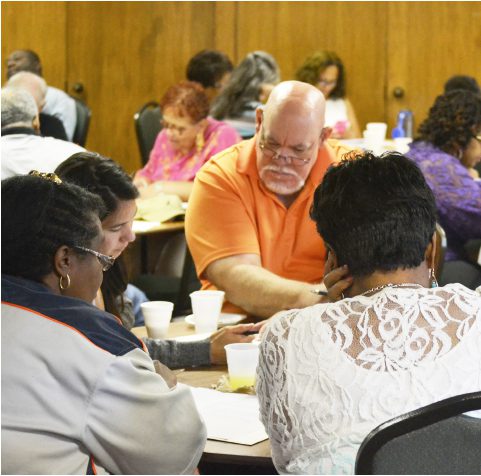


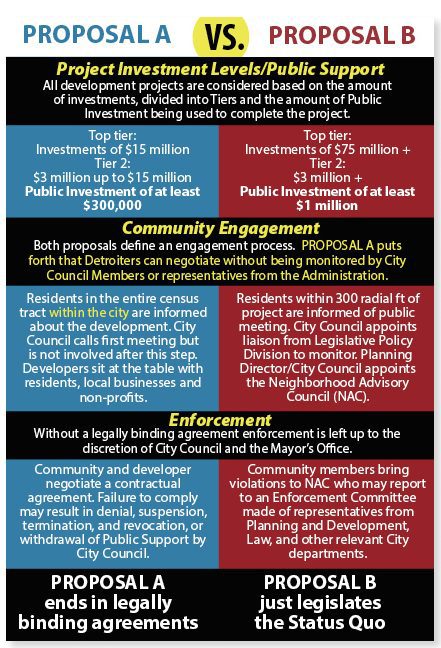

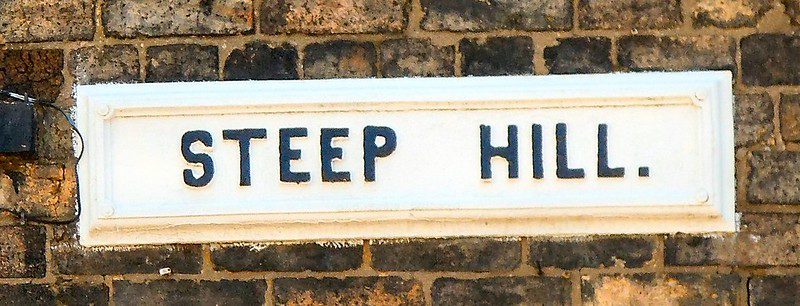
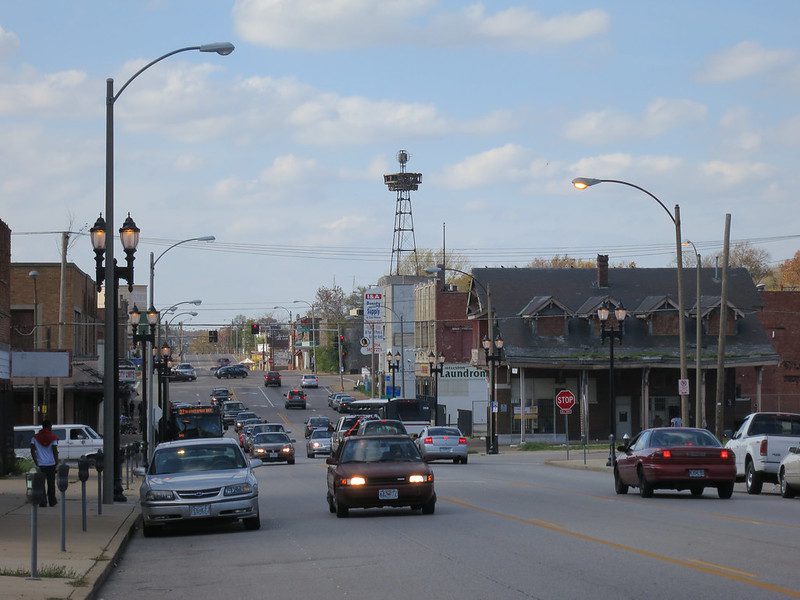
Comments